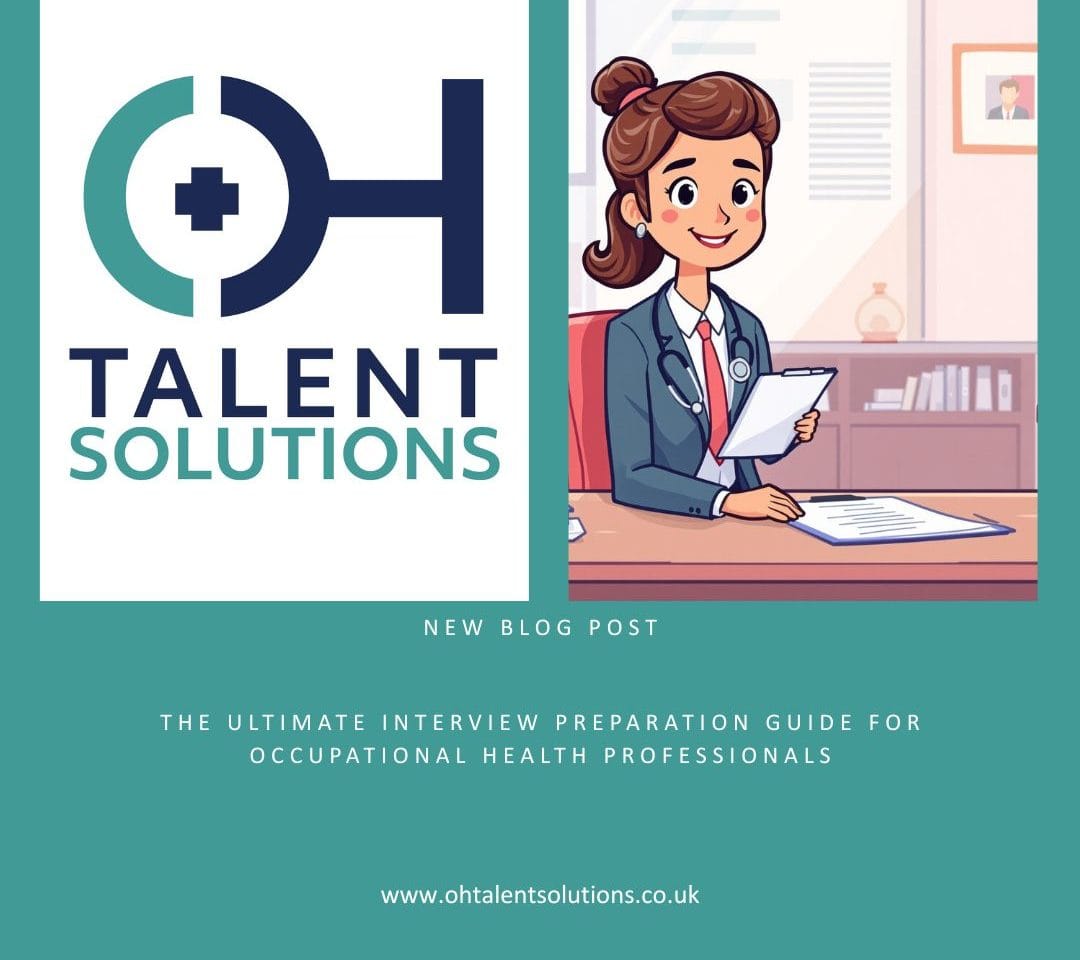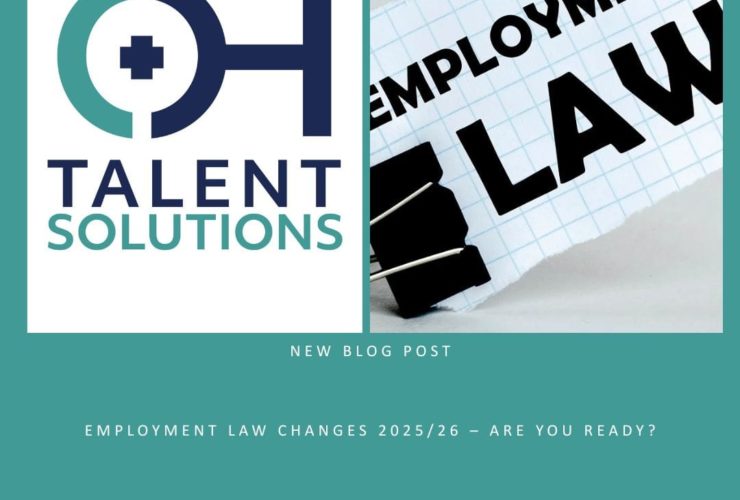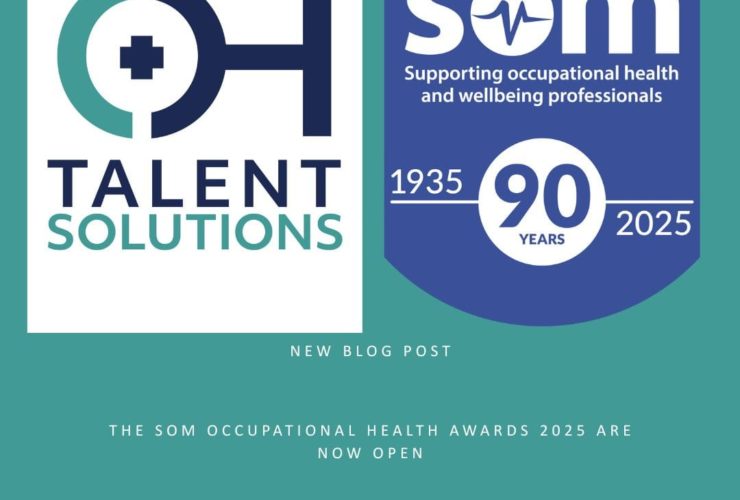Interview Preparation Guide for Occupational Health Professionals
How to Ace Your Occupational Health Interview
Why Preparation Matters
Securing your dream role in occupational health (OH) takes more than strong clinical skills. Success also depends on how you perform in the interview. A well-prepared candidate demonstrates confidence, professionalism, and genuine passion for workplace wellbeing.
Whether you’re applying to be an OH Advisor, Nurse, Physician, or Manager, preparation will help you stand out in a competitive field.
Before the Interview: How to Prepare
Research the Employer
Every strong interview begins with research.
Start by exploring the organisation’s website and social channels to understand its services and culture.
Next, review the job description carefully so you can align your experience with the key requirements.
Finally, stay current with occupational health trends, recent legislation such as the 2025 NI reforms, and innovations in digital health.
Build a Professional Portfolio
A clear and organised portfolio strengthens your credibility. It should include:
Certificates and registrations (NMC, GMC, RCCP)
Brief, anonymised case studies showing sound clinical reasoning
Evidence of CPD and recent specialist training
Presenting tangible examples of your skills shows both competence and commitment.
The Four P’s of Interview Success
Adopt this proven framework to boost confidence:
Prepare – Research the organisation and rehearse potential questions.
Practice – Review your answers and focus on professional body language.
Present – Dress appropriately and arrive early.
Participate – Engage actively, listen carefully, and ask thoughtful questions.
Transitioning smoothly between these four stages will help you appear confident and well-organised.
Common Occupational Health Interview Questions
Clinical Competency
Example: “Describe a challenging OH case you managed.”
Use the STAR method (Situation, Task, Action, Result) to structure your response.
Explain your decision-making process, collaboration with colleagues, and understanding of fitness-for-work principles.
Example: “How do you stay current with OH best practice?”
Mention specific journals, training courses, and professional memberships such as SOM or RCCP.
Additionally, reference recent guidance from HSE, NICE, or SEQOHS to demonstrate awareness.
Behavioural and Situational
Example: “How do you handle difficult conversations about fitness for work?”
Emphasise empathy, confidentiality, and active listening.
Show your ability to communicate professionally while maintaining impartiality.
Example: “Describe a time you challenged a management decision on health grounds.”
Explain how you used evidence to advocate for staff wellbeing.
Highlight positive outcomes that resulted from your professional approach.
The 30-60-90 Day Question
Many interviewers now ask, “What would you accomplish in your first 30, 60, and 90 days?”
Your Plan Could Include:
First 30 days: Observe processes, learn systems, and meet key stakeholders.
Next 30 days: Build relationships, identify improvement opportunities, and support current projects.
Final 30 days: Lead small initiatives, demonstrate autonomy, and contribute to strategic goals.
Framing your answer this way shows foresight and a proactive attitude.
Technical Knowledge to Review
Core Legislation
Health and Safety at Work Act 1974
Management of Health and Safety at Work Regulations 1999
Equality Act 2010
GDPR and data protection principles
Recent HSE updates on workplace health
Key Clinical Areas
Fitness-for-work assessments
Health surveillance and screening
Risk assessment and hazard management
Mental health in the workplace
Immunisation and occupational disease prevention
Being able to discuss these confidently reinforces both technical skill and legal awareness.
Questions to Ask the Interviewer
Strong candidates don’t just answer questions — they ask insightful ones. Consider the following:
What are the main challenges the OH team currently faces?
How does this role contribute to wider organisational goals?
What professional development opportunities are available?
How does the company measure the success of OH programmes?
What innovations are planned for the service in the next few years?
These questions demonstrate curiosity, initiative, and long-term thinking.
Useful Industry Resources
Professional Bodies and Standards
Society of Occupational Medicine (SOM) – Guidance and policy updates
Royal College of Physicians – Training and certification pathways
HSE Guidance – Compliance and best practice
SEQOHS Standards – Quality frameworks for OH services
Publications and Research
Occupational Medicine Journal
Occupational Health & Wellbeing Magazine
NICE Workplace Health Guidelines
HSE Research Reports
Regularly engaging with these resources keeps your knowledge sharp and your answers relevant.
Final Week Preparation Checklist
Documents
Updated CV
Certificates and registrations
Case study portfolio
References and contact details
Prepared interview questions
Practical Steps
Plan your travel route and allow extra time
Choose professional attire that fits the company culture
Practice key answers aloud
Research the interview panel on LinkedIn
Prepare for different formats such as panel or scenario-based interviews
On the Day: Demonstrate the Three C’s
Competence – Show technical ability and up-to-date knowledge.
Character – Display empathy, professionalism, and integrity.
Chemistry – Build rapport and communicate genuine enthusiasm.
Arrive early, maintain eye contact, and give structured answers. Furthermore, listen closely to each question before responding.
After the Interview
Follow up promptly with a concise thank-you email. Express appreciation for the opportunity and reaffirm your interest. If relevant, offer additional information or clarification on any topic discussed.
A thoughtful follow-up leaves a lasting, positive impression.
Tailored Preparation for Each Role
OH Physicians
Expect case-based questions about diagnostic reasoning and fitness-for-work assessments.
OH Nurses
Be ready to discuss immunisation, health surveillance, and employee wellbeing initiatives.
OH Advisors
Highlight your understanding of risk management, compliance, and health promotion strategies.
Final Thoughts
Achieving interview success in occupational health depends on preparation, confidence, and clear communication. Use evidence to demonstrate your expertise, and show genuine enthusiasm for improving employee wellbeing.
Because the sector continues to evolve — with growing focus on mental health, digital health, and preventive strategies — employers value candidates who adapt quickly and think ahead.
Good luck — your next opportunity could be just one interview away!
Take the Next Step
For tailored career guidance and access to exclusive occupational health vacancies, contact OH Talent Solutions.
📧 Email: info@ohtalentsolutions.co.uk
📞 Call: 02393 871 484
🌐 Visit: www.ohtalentsolutions.co.uk




